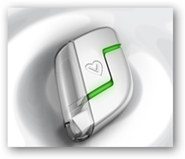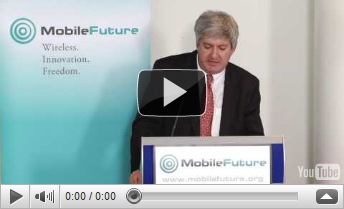Well here it is now from the government. A couple years ago I started posting about  behavioral health and mostly relative to insurance companies. They use data to project risk and keep cost down with their algorithms. Guess what, they want the data like everyone else to predict and keep costs down, nothing new here. The event is cosponsored by Qualcomm. Is this amazing that we have reached this point with wanting all the data available to predict our behaviors? They want to know what you are going to say and do next and mobile technology as well as for better health gets mixed in there. This is all fine and dandy if you are on the receiving side to profit but when you are the little person out there it’s a bit over whelming. We still need the balance of what is called participatory sensing before this moves forward or there could be a real angry
behavioral health and mostly relative to insurance companies. They use data to project risk and keep cost down with their algorithms. Guess what, they want the data like everyone else to predict and keep costs down, nothing new here. The event is cosponsored by Qualcomm. Is this amazing that we have reached this point with wanting all the data available to predict our behaviors? They want to know what you are going to say and do next and mobile technology as well as for better health gets mixed in there. This is all fine and dandy if you are on the receiving side to profit but when you are the little person out there it’s a bit over whelming. We still need the balance of what is called participatory sensing before this moves forward or there could be a real angry  crowd develop out of some of this if not implemented correctly with the proper privacy.
crowd develop out of some of this if not implemented correctly with the proper privacy.
Are Cell Phones Enabling anyone to be a Scientist or Doctor - Participatory Sensing from CENS at UCLA
Participatory Sensing – Medical Devices Reporting Data for Patient Compliance
Like it or not (and I don’t like all of this either) the algorithms for predictive behaviors now have the attention of the NIH. This means getting data from your smart phone, medication compliance, what your personal habits are, etc. so this is still pretty touchy when you have one side wanting power and control justifying by saving money (which it could save some) but more or less wielding it out of control with thinking that algorithms will give them all the answers. Grants are given out for this.
UCLA and 5 University of California Hospitals Receive $9.9M from HHS Study Use of Wireless and Remote Care Management to Reduce Hospital Readmissions–Participatory Sensing
If that still is not good enough, this IPA has a 3 million dollar bounty for the algorithms that will predict and prevent re-admissions to hospitals. 
Heritage Providers Continues to Promote $3 Million Dollar Prize to Create An Algorithm To Predict and Prevent Hospitalizations
Research and crunching numbers certainly helps but not when out of balance with humans ethics and we are seeing that out there today with those who perhaps are not as digitally literate and it’s technological war fare. The news you see doesn't quite address this topic enough with connecting all the dots as sometimes the news is maybe a bit distracted with more ratings and OMG type of material. They have to market and sell like everyone else out there. We have these developing, the human audit trails with data to use to analyze: (I wrote this 2 years ago).
The Human Audit Trail to automatically track your fitness and sleep and a few other things…
From the website:
“Using mobile technologies to more rapidly and accurately assess and modify behavior, biological states and contextual variables has great potential to transform medical  research. Recent advances in mobile technologies and the ubiquitous nature of these technologies in daily life (e.g., smart phones, sensors) have created opportunities for research applications that were not previously possible (e.g., simultaneously assessing behavioral, physiological, and psychological states in the real world and in real-time). The use of mobile technology affords numerous methodological advantages over traditional methods, including reduced memory bias, the ability to capture time-intensive longitudinal data, date- and time-stamped data, and the potential for personalizing information in real-time. However, challenges in mobile health (or mHealth) research exist. Importantly, much of the work being done in mHealth arises from single disciplines without integration of the behavioral, social sciences and clinical research fields. Without integration, mobile technologies will not be
research. Recent advances in mobile technologies and the ubiquitous nature of these technologies in daily life (e.g., smart phones, sensors) have created opportunities for research applications that were not previously possible (e.g., simultaneously assessing behavioral, physiological, and psychological states in the real world and in real-time). The use of mobile technology affords numerous methodological advantages over traditional methods, including reduced memory bias, the ability to capture time-intensive longitudinal data, date- and time-stamped data, and the potential for personalizing information in real-time. However, challenges in mobile health (or mHealth) research exist. Importantly, much of the work being done in mHealth arises from single disciplines without integration of the behavioral, social sciences and clinical research fields. Without integration, mobile technologies will not be  maximally effective. is unlikely in other discipline or trade-specific venues”.
maximally effective. is unlikely in other discipline or trade-specific venues”.
The Smart Inhaler with Blue Tooth and Wireless Capabilities
There are other devices too, recently mentioned was the application that works with an iPhone to measure your activity for the day. You can read more at the link below. There needs to be a balance on how and where devices are used to create better health and not end up with a big brother effect, that in turn will end up defeating the purpose for the sake of just saving a few dollars. At any rate the NIH wans to get in on adding their 2 cents to savings end of things it looks like as well.
The White House is very aware of participatory sensing and made this video on the topic about a year ago. BD
White House Speaks About Wireless Technology – Healthcare And Participatory Sensing
The National Institutes of Health will offer a mobile-health workshop for behavioral science researchers, federal health officials and other members of the medical and health technology communities this summer, according to a news release from the Washington-based agency.
Participants in the weeklong NIH mHealth Summer Institute will receive instruction on the engineering, behavioral and clinical science behind mobile-health technology and will work to develop potential mHealth research projects.
"NIH is committed to harnessing the power and reach of mobile technologies to extend healthy life and to reduce the burden of illness and disability," said Dr. Roderic Pettigrew, director of the National Institute of Biomedical Imaging and Bioengineering, in the release.
Mobile technologies such as smartphone diagnostic and imaging applications, electronic health records and wireless home-use medical devices "hold the promise of reducing costs and errors, removing geographical and economic disparities and personalizing healthcare," according to the release. The institute will take place June 20-24 in San Diego; applications to participate are due Thursday, March 3. Additional information and registration can be found at the website of the NIH Office of Behavioral and Social Sciences Research.
NIH offers mobile-health workshop - Healthcare business news from Modern Healthcare




0 comments :
Post a Comment